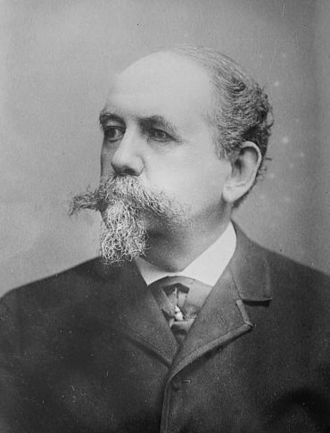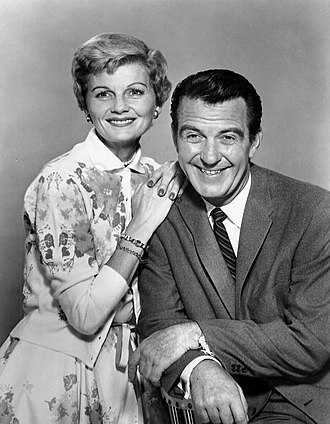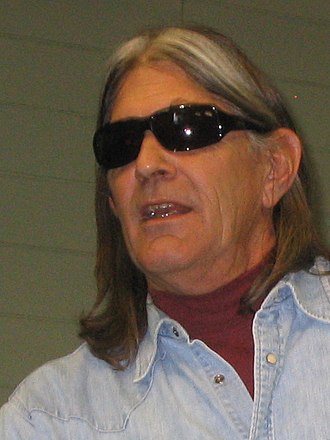Discover Your Roots
SIGN UPDiscover Your Roots
SIGN UPWard is a male name of English origin, meaning "Guardian." It is derived from the Old English word "weard," which signifies a protector or guardian. The name Ward has a strong and noble connotation, reflecting qualities of responsibility, protection, and watchfulness. In history and literature, the name has been associated with notable figures such as Ward Bennett, an influential American designer and artist, and Ward Kimball, a renowned animator for the Walt Disney Studios. The name has also been used as a stage name, pen name, and nickname for various individuals. In pop culture, Ward appears as a character in fictional works, such as Ward Cleaver from the television sitcom "Leave It to Beaver" and Ward Meachum from Marvel Comics' "Iron Fist." With its English roots and meaning of guardianship, Ward carries a timeless and dignified essence.

Wardell Edwin Bond, born on April 9, 1903, was an iconic American character actor known for his appearances in over 200 films and his role as Major Seth Adams in the NBC television series Wagon Train from 1957 to 1960. He gained recognition for his memorable performances as Bert the cop in the classic "It's a Wonderful Life" (1946) and as Captain Clayton in John Ford's "The Searchers" (1956). Bond's versatility as a character actor allowed him to portray cowboys, cops, and soldiers with great skill. Born in Benkelman, Nebraska, he later graduated from the University of Southern California, where he played football and formed a lifelong friendship with John Wayne. Bond's career was heavily influenced by his collaborations with directors John Ford and Frank Capra, resulting in appearances in numerous acclaimed films. His significant contributions to cinema have solidified his place as an esteemed figure in the industry. Bond's legacy lives on through his extensive filmography and the impact he made on the silver screen.

Ward Thomas is an English modern country-pop duo, comprising twin sisters Catherine and Lizzy Ward Thomas, hailed as "Britain's first country stars." Born and raised on a farm in rural Hampshire, England, they attended Alton School and earned the nicknames "Scruff 1" and "Scruff 2." Their father, Anthony Ward-Thomas, founded a successful removals business, while their mother, Amanda Ward Thomas, is an artist.In 2014, they released their debut album, "From Where We Stand," which won UK Album of the Year at the British Country Music Awards and sold over 25,000 copies. Their second album, "Cartwheels," became the first by a UK country act to top the UK Albums Chart, surpassing the previous record held by The Shires. The duo has toured the UK extensively and performed at prestigious events such as the BBC Radio 2 Live in Hyde Park festival.Ward Thomas' success continued with the release of their third album, "Restless Minds," featuring the lead single "Lie Like Me." Their talent and achievements have earned them accolades, including the Jeff Walker Global Achievement Award from the Country Music Association, making them only the second UK country act to receive this honor.Overall, Ward Thomas has made a significant impact on the UK country music scene and continues to captivate audiences with their authentic and compelling music.

Samuel Ward McAllister, born on December 28, 1827, was a prominent figure in the Gilded Age of America, recognized as an authority on social hierarchy and taste. His influence and power were derived from his ability to classify families as part of the renowned "cream of New York society," known as The Four Hundred. McAllister's listings were often questioned by those excluded, and he was noted for his self-aggrandizement motivation. He hailed from a socially prominent family in Savannah, Georgia, and later became a key figure in New York society. McAllister's desire for social recognition led him to become a tastemaker among the city's elite, particularly the "Knickerbocracy," a group of old merchant and landowning families. He was known for his role in shaping Newport, Rhode Island, into a favored destination for the wealthy during the Gilded Age. McAllister's downfall came with the publication of his memoir, "Society as I Have Found It," in 1890, which alienated him from the old guard. He coined the phrase "The Four Hundred," claiming that only 400 people truly mattered in fashionable New York society. Additionally, he founded the "Society of Patriarchs," a group of 25 gentlemen from New York Society, and established the prestigious Patriarchs Ball. His influence and impact on the social scene of his time have left a lasting legacy.

Ward Cleaver Jr. is a fictional character known for his role in the American television sitcom Leave It to Beaver. He and his wife, June, are often cited as the quintessential suburban parents of the 1950s baby boomers. Portrayed by Hugh Beaumont, Ward is depicted as a responsible, white-collar professional and an upstanding citizen with a background as a farmer's son hailing from Shaker Heights, Ohio. A World War II veteran, he is a graduate of a state college, majoring in philosophy, and a member of a fraternity. His principal role in the series is to provide moral instruction to his sons, Wally and Theodore (nicknamed "The Beaver"), at the end of each episode. At home, Ward is seen spending evenings with June, occasionally attending social events, and managing household tasks. He is portrayed as handy with tools and knowledgeable about outdoor cooking. In his work life, Ward is shown to drive a variety of cars, play golf at a local country club, and attend church. The character's demeanor and interactions with his family and coworkers serve to flesh out his personality. Despite his occasional sternness, Ward is ultimately depicted as a caring and devoted family man.

Ward LeRoy Churchill, born on October 2, 1947, is an American activist, author, and former professor of ethnic studies at the University of Colorado Boulder. Known for his contentious views on the historical treatment of political dissenters and Native Americans by the United States government, Churchill has stirred controversy with his direct and confrontational style. His 2001 essay, "On the Justice of Roosting Chickens," gained widespread attention for its assertion that the September 11 attacks were a consequence of unlawful U.S. foreign policy. This work also notably featured his use of the term "little Eichmanns" in reference to those working in the World Trade Center.Churchill's career at the University of Colorado was marked by both accolades and disputes. While he was granted tenure and served as chairman of the Ethnic Studies Department, allegations of research misconduct and misrepresentation of his ethnicity led to his termination in 2007. Despite filing a lawsuit for unlawful termination and winning a symbolic $1 in damages, subsequent legal proceedings did not result in his reinstatement.Born in Urbana, Illinois, Churchill's upbringing was marked by his parents' divorce and his military service in the United States Army. His educational background includes a B.A. in technological communications and an M.A. in communication theory from Sangamon State University. Throughout his career, Churchill has been a polarizing figure, drawing both support and criticism for his outspoken viewpoints and controversial actions.
All images displayed on this page are sourced from Wikipedia or Wikimedia Commons.We use these images under their respective Creative Commons or public domain licenses. Wherever applicable, author attributions and license information are provided. If you believe an image is used incorrectly or outside its license terms, please contact us so that we can review and correct the issue.